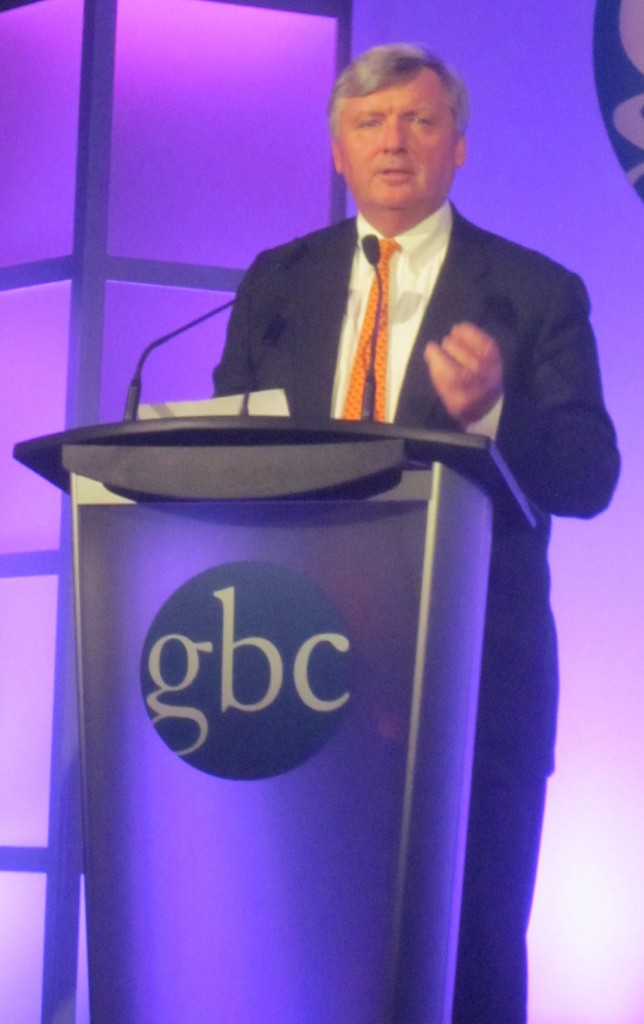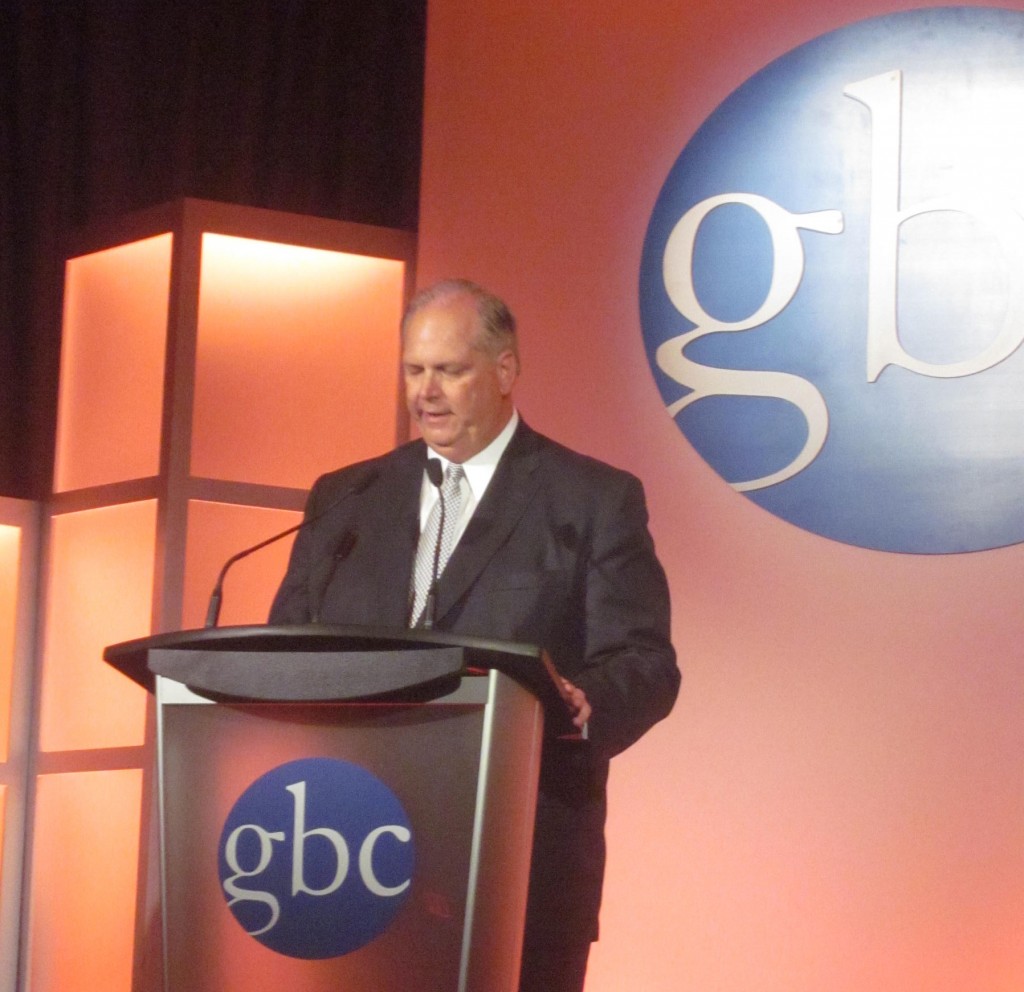Business group leaders say Maryland needs to be more competitive on taxes
By Len Lazarick
With a report Monday by CEO magazine ranking Maryland among the 10 worst states to do business, the Greater Baltimore Committee said it’s going to renew its push to improve the state’s competitiveness.
“I’m always struggling with why we think we’re so good and others think we’re not,” said Brian Rogers, chairman of the T. Rowe Price Group who chairs the Greater Baltimore Committee’s board.
Rogers told the GBC’s annual meeting Wednesday night that despite Maryland’s good schools, highly educated workforce and quality of life, it’s a real concern that the state ranks at best in the middle of the pack for doing business.
According to CEO magazine, Maryland ranked 41st among the states, slipping from 33rd place in 2010, to 37th in 2011, and 40th in 2012, putting it among the 10 worst states for the first time. The magazine said Maryland’s “development trend indicator” was ‘negative,’ ” having “passed major tax increases, [and] now may boost minimum wage and sick leave.”
Tax rates drive business decisions
“Our relative tax rates are a big deal” in comparison to Virginia, Pennsylvania and Delaware, Rogers said. (CEO magazine ranked Virginia 7th, but Pennsylvania was ranked 42nd and Delaware 27th, slipping from 14th place last year.)
The three states at the very bottom are Illinois, California and New York, and all the states to the northeast of Maryland ranked worst, except for New Hampshire and Maine.
“Tax considerations drive real world decisions,” said Rogers, who is also chief investment officer of T. Rowe Price, a 75-year-old investment firm that manages more than $600 billion in assets.
“We need to reduce taxes on things we want to promote,” such as job creation and economic growth, Rogers said, “and raise taxes on things we don’t want” such as alcohol, tobacco and gasoline. (The Maryland General Assembly in the past six years has doubled the cigarette tax, increased alcohol taxes 50% and hiked the gas tax just last month, a move the GBC has long supported to invest in transportation needs.)
Rogers suggested lowering the corporate income tax, which makes up only 4% of state revenues. Such a move is backed by some legislative leaders, as reported here last week.
“Baby steps of change [in the corporate tax rate] would enhance the competitiveness of our business climate,” Rogers said.
Other negative views of magazine’s ranking
Kim Burns, president of Maryland Business for Responsive Government, also took a dim view of CEO magazine’s new ranking, and its mention of taxes, a possible minimum wage hike and mandatory sick leave.
“Job creators are watching and listening to what the Maryland General Assembly has to say and they don’t like it very much,” said Burns. “Again, it has proven true that just the mere introduction of these anti-job proposals by our state elected officials, even if they don’t pass, sends a message that is heard everywhere but Annapolis it seems.”
The Maryland Republican Party put a partisan spin on the CEO magazine rankings. “The Top 10 best states are all led by Republican governors and 7 of the 10 bottom are led by Democratic governors,” said an email from the GOP. “Under the leadership of Republican Governor Scott Walker, Wisconsin was ranked 41st in 2010, but ranked 17th in 2013 while Maryland dropped from 33rd to 41st.”
What GBC plans to do
In December 2010, the Greater Baltimore Committee issued a report called “Gaining a Competitive Edge,” recommending eight core pillars for economic growth and job creation. Among them were: “Regulatory policies that are streamlined, stable and predictable” and “Tax structure that is fair and competitive.”
GBC President Don Fry said the group plans to build on that initiative by developing a “Strategy for Competitiveness,” starting with a day-long Chesapeake Conference of CEOs June 12 at the Baltimore Hilton. Fry told the annual dinner meeting at the Hyatt Regency that the conference “will forge a consensus on specific, achievable steps and policy directions to improve our business climate in our region and state.”

MarylandReporter.com is a daily news website produced by journalists committed to making state government as open, transparent, accountable and responsive as possible – in deed, not just in promise. We believe the people who pay for this government are entitled to have their money spent in an efficient and effective way, and that they are entitled to keep as much of their hard-earned dollars as they possibly can.


